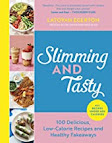This is a lighter, homemade chicken döner kebab inspired by Mezze Mike’s
thin-press baking paper method. Rolling the mince ultra-thin gives you
that classic shaved kebab texture, while the yoghurt and spices keep it
juicy and flavour-packed.
Scroll down for full recipe and instructions!
Homemade Chicken Doner Kebab Recipe
After recreating Mezze Mike’s lamb döner at home and being way too impressed
with myself, I knew I had to try the method again—this time with chicken. If
you’ve ever thought homemade kebabs couldn’t possibly hit the same way as a
takeaway… this
fakeaway recipe
is here to prove you very wrong.
What completely sold me was Mezze Mike’s genius technique of rolling the
mince between two sheets of baking paper and getting it as thin as humanly
possible. No rotisserie, no fancy equipment—just thin, even kebab meat that
bakes quickly and slices up just like the real thing. Honestly, it’s one of
those “why haven’t I always done this?” moments.
This homemade chicken doner kebab recipe is one of my favourite fakeaways because it delivers everything you love about a takeaway kebab, but made at home with simple ingredients. The chicken is juicy, boldly spiced, and packed with flavour, making it perfect for stuffing into warm pittas, wraps, or bowls. If you’re looking for an easy chicken doner kebab at home, this recipe is quick, affordable, and far lighter than a takeaway version. It’s ideal for busy weeknights, meal prep, or when you want a comforting fakeaway chicken doner without leaving the house.
Why You’ll Love This Homemade Chicken Doner Kebab
For my chicken version, I wanted loads of flavour without it feeling heavy,
so I went in with blended red onion, fat-free Greek yoghurt, lemon juice,
and a mix of warm, classic kebab spices. The key step here is really working
the mince, stirring and pressing it down for a good five minutes until
everything binds together properly. It might feel like effort, but this is
what gives you that proper döner texture instead of crumbly chicken mince.
Once it’s rolled super thin between the baking paper, it only needs about 15
minutes in the oven, which makes it perfect for quick dinners or meal prep.
Slice it up, stuff it into warm pittas, drown it in garlic sauce or chilli
sauce (or both, always both), and suddenly you’re eating like it’s kebab
night—but homemade.
This one’s lighter, high in protein, ridiculously easy, and honestly
dangerous because you’ll want to make it all the time. Homemade takeaway
vibes
How to Serve
Stuff into warm pitta or flatbreads
Add shredded lettuce, tomatoes, red onion, and cucumber
Finish with garlic yoghurt, chilli sauce, or tzatziki
Great for meal prep—reheats beautifully in a pan or air fryer
Can you make chicken doner kebab without a rotisserie?
Yes, this recipe is designed to be made at home without special equipment. The chicken is cooked in a pan or oven to recreate the classic doner texture and flavour.
What cut of chicken is best for chicken doner kebab?
Chicken thighs work best as they stay juicy and tender, but chicken breast can also be used for a leaner option.
Is homemade chicken doner kebab healthy?
Yes, making chicken doner kebab at home allows you to control the ingredients, reduce oil, and avoid additives found in takeaways.
Can I meal prep chicken doner kebab?
Absolutely. The cooked chicken keeps well in the fridge and is perfect for quick lunches or dinners throughout the week.
Pin for later:
Video Recipe
Looking for some more recipe inspiration?
Homemade Chicken Döner Kebab Recipe | Fakeaway Recipe
.png)

.png)









.png)
.png)












.png)








